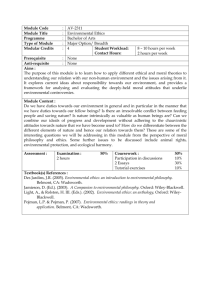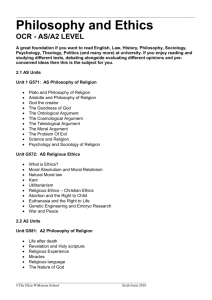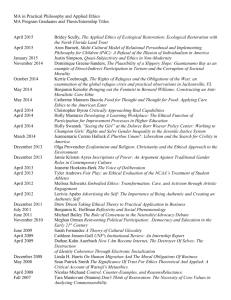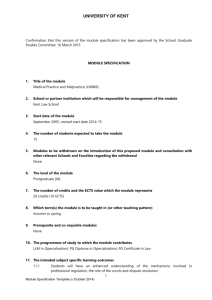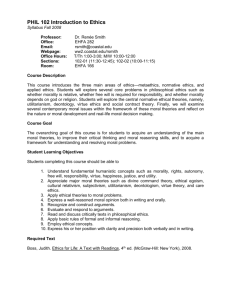Philosophy-and-Ethics-2016
advertisement
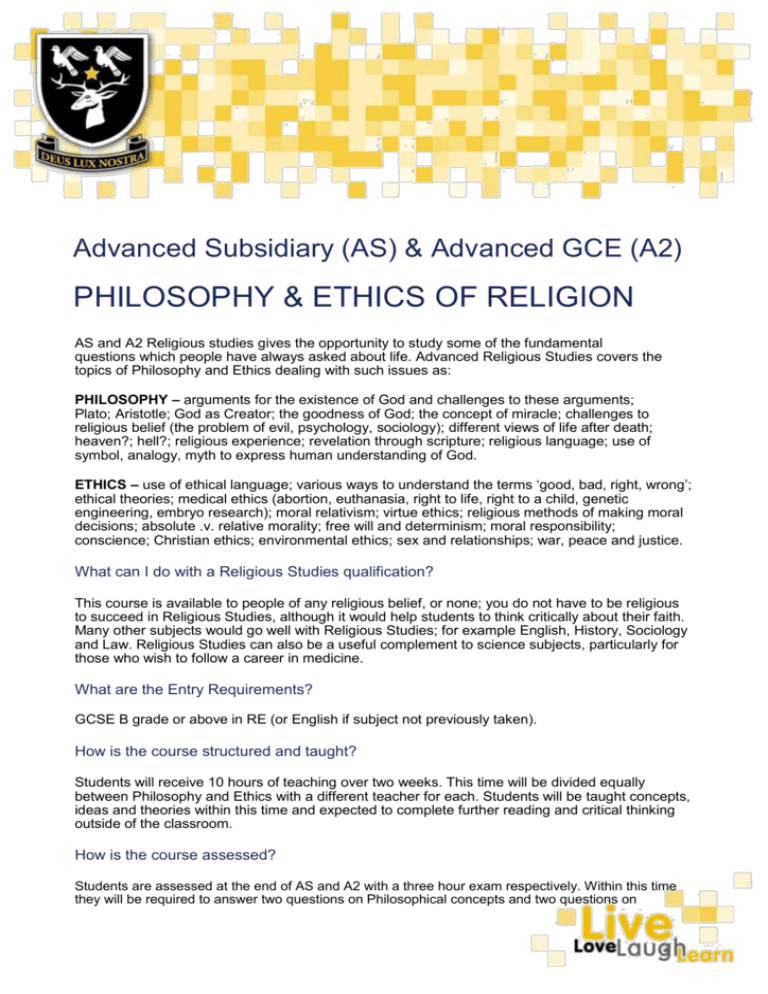
Advanced Subsidiary (AS) & Advanced GCE (A2) PHILOSOPHY & ETHICS OF RELIGION AS and A2 Religious studies gives the opportunity to study some of the fundamental questions which people have always asked about life. Advanced Religious Studies covers the topics of Philosophy and Ethics dealing with such issues as: PHILOSOPHY – arguments for the existence of God and challenges to these arguments; Plato; Aristotle; God as Creator; the goodness of God; the concept of miracle; challenges to religious belief (the problem of evil, psychology, sociology); different views of life after death; heaven?; hell?; religious experience; revelation through scripture; religious language; use of symbol, analogy, myth to express human understanding of God. ETHICS – use of ethical language; various ways to understand the terms ‘good, bad, right, wrong’; ethical theories; medical ethics (abortion, euthanasia, right to life, right to a child, genetic engineering, embryo research); moral relativism; virtue ethics; religious methods of making moral decisions; absolute .v. relative morality; free will and determinism; moral responsibility; conscience; Christian ethics; environmental ethics; sex and relationships; war, peace and justice. What can I do with a Religious Studies qualification? This course is available to people of any religious belief, or none; you do not have to be religious to succeed in Religious Studies, although it would help students to think critically about their faith. Many other subjects would go well with Religious Studies; for example English, History, Sociology and Law. Religious Studies can also be a useful complement to science subjects, particularly for those who wish to follow a career in medicine. What are the Entry Requirements? GCSE B grade or above in RE (or English if subject not previously taken). How is the course structured and taught? Students will receive 10 hours of teaching over two weeks. This time will be divided equally between Philosophy and Ethics with a different teacher for each. Students will be taught concepts, ideas and theories within this time and expected to complete further reading and critical thinking outside of the classroom. How is the course assessed? Students are assessed at the end of AS and A2 with a three hour exam respectively. Within this time they will be required to answer two questions on Philosophical concepts and two questions on Ethical theories. Examination Board OCR What Higher Education or career opportunities will it lead to? With a qualification in Religious Studies, you could go on to Higher Education, at college or university. The skills developed in Religious Studies could be particularly useful for careers in law, education, social work, politics, medicine, administration or the media. What other life skills and experiences will I gain? Studying Religious Studies helps you to develop the ability to: analyse and construct sound arguments; distinguish fine differences between views and find common ground; present ideas convincingly through well-constructed, systematic arguments; write clearly and persuasively; generate ideas and come up with solutions to problems; be open to new ideas and new ways of thinking. You also gain many other general skills sought after by a range of employers. These include: self-motivation and the capacity for independent study and thought; clear communication and presentation; the ability to prioritise work and meet deadlines; flexibility and creativity; the ability to identify, absorb and sift complex information; working in a team;


